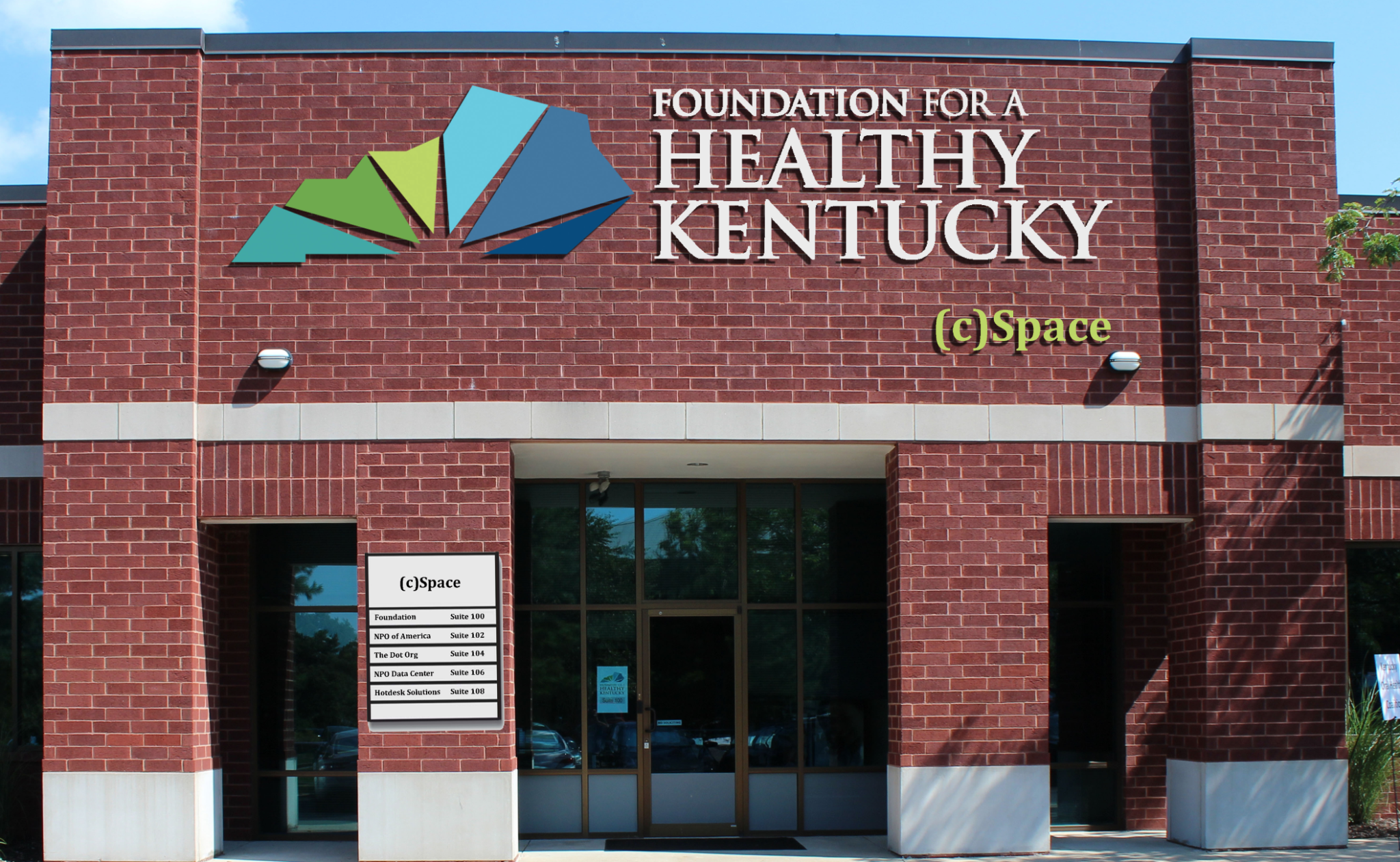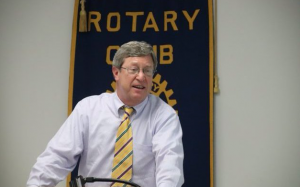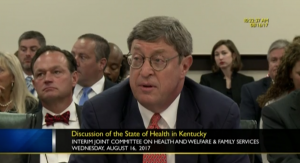Ben Chandler Is Leading the Way In Facing the State’s Health Challenges
Writer / Laura Ross
It could have been a swing and a miss. Instead, it was a home run that ultimately benefited everyone in Kentucky.
In the early 1990s, Ben Chandler was Kentucky’s attorney general. He had already enjoyed robust law and public service careers, bolstered by a family legacy of public service, that included his legendary grandfather, Albert Benjamin (A.B.)
“Happy” Chandler, who served two terms as Kentucky governor and parts of two terms as a U.S. Senator. The elder Chandler also was famously the second commissioner of baseball, from 1945-1951, helping Jackie Robinson break the baseball color barrier in 1947.
A.B. “Ben” Chandler III, who also shares his grandfather’s passion for baseball, took on America’s other favorite pastime, politics, with relish.
During the 1990s, insurance giants Anthem and Blue Cross/Blue Shield merged. Anthem, a for-profit company, took over all the resources of Blue Cross/Blue Shield, which was a non-profit insurer. In the conversion, Anthem did not account for the value of charitable assets, and Chandler, as Kentucky’s attorney general, sued. The complicated case progressed, and eventually, it was settled for $45M, which a judge ordered be placed into a foundation.
With that, the nonprofit, nonpartisan Foundation for a Healthy Kentucky was born in 2001, with a goal of improving the health of people in the Commonwealth of Kentucky.
Fast forward to 2018, and Ben Chandler, as president and CEO, now leads the organization, which is nestled in the corner of an office complex off Hurstbourne Lane.
“I never dreamed that would happen,” Chandler says. “After the lawsuit, I ran for governor, and then served nine years in Congress.
Three years after that, in 2016, I was approached to take this job and come full circle. I’m thrilled to do that.”
During Chandler’s time in Congress, he focused on legislation addressing child and elder abuse prevention, air travel safety, veterans’ healthcare and more. He also played a central role in passing a tobacco buyout. Now, as head of the Foundation for a Healthy Kentucky, he feels at home.
“The whole notion that I could come and help shepherd an entity that had been a legacy for me was very exciting,” he says. “I can contribute on a day-to-day basis in a meaningful way for my fellow citizens.”
It’s no secret that Kentuckians face numerous health challenges.
“The Foundation is trying to make an impact,” he says. “It’s a great job because day in and day out we try to improve the health of our fellow Kentuckians. There’s nothing more important than our health.”
Rather than focusing primarily on giving grants out as a central effort, the Foundation, under Chandler’s leadership, believes advocacy and policy work will ultimately reap the best rewards for Kentucky.
“We believe we can accomplish a great deal more by addressing health challenges through good public health policy,” Chandler adds.
The Foundation for a Healthy Kentucky recently set about forming a coalition of more than 160 entities to work on reducing tobacco use and exposure to tobacco emissions throughout the Commonwealth. Members of the Coalition for a Smoke-Free Tomorrow include the State Chamber of Commerce, the Kentucky Medical Association, the Kentucky Nurses Association, Greater Louisville Inc., the Kentucky Council of Churches, several schools, public health departments and more. This powerful coalition took on two immediate tasks: getting a cigarette tax passed in Kentucky, followed by current efforts to pass more smoke-free laws across the state.
Chandler is buoyed by the mix of minds in the coalition.
“All these groups agree on our essential agenda of improving the health of Kentuckians,” he says. “There may be discussions on compromises in the legislature, but in general, that keeps the conversation going and, ultimately, supports our citizens.”
Whether it’s in the Foundation’s work with the coalition, with legislators or on the ground with Kentuckians, the Foundation remains completely nonpartisan.
“We don’t care whether you’re a democrat, republican or independent,” Chandler says. “We just care whether people are interested in improving the health of our citizens. If they can agree with us on issues, then we will work with them any way we can.”
Following an intense, six-month coalition campaign to pass a $1 tax increase on cigarettes, the Kentucky General Assembly eventually passed a 50-cent increase in 2018. The difference was not the outcome the Foundation wanted, but Chandler still sees it as a win.
“From our perspective, we got the largest cigarette tax increase in the history of Kentucky,” Chandler says. “We wanted more because we thought a $1 or more would encourage many people to either quit smoking or not start in the first place. But, to still come away with the largest tax increase in Kentucky ever for cigarettes is an accomplishment. That doesn’t happen every day, particularly in a tobacco state.”
The Foundation has now turned its sights towards enacting more smoke-free laws across the state.
“We’re going community by community,” Chandler says. “I’ve been to 113 of 120 counties this year already, talking about the importance of smoke-free laws. We currently are working with multiple communities and have helped spur laws in nearly half a dozen, but this doesn’t happen overnight, especially in an election year. Next year, we will get into the meat of it.
“We’re also working on how the Medicaid waiver moves along in Kentucky,” Chandler adds.
Gov. Steve Beshear expanded Medicaid under the Affordable Care Act to include 450,000 Kentuckians who didn’t previously have healthcare coverage. Recently, Gov. Matt Bevin added work and premium paying requirements to the program.
“Our goal is to keep as many of those 450,000 people covered as possible,” Chandler says.
For the lifelong democrat, being the nonpartisan head of the Foundation can have its challenges.
“When I was in Congress, I was a dying breed — a moderate,” he says. “I believe compromise is a good thing and it comes naturally for me to look for areas to find common ground. Disagreements shouldn’t hamper you from working together to accomplish things. If you keep your eye on that ball, you’ve got to conclude that cooperating with people to get good policy passed trumps everything.”
Whether that’s related to health care policy, tobacco cessation programs or other issues, Chandler always comes back to the health of Kentuckians. He points out that health is different from health care.
“I’ve never met a person who wants health care if they have good health,” he says.
“Our country has created a rescue system,” he adds. “As a nation, we’ve spent a lot of money to rescue people from bad health and provide health care, but as a nation, we spend twice as much per capita in the U.S. on health care than in any other country, and we rank 37th in outcomes. That’s something we must address. We need to invest more in good health prevention on the front end of the equation.”
Is that attainable?
“We believe it’s the right way to go,” Chandler says. “If we invest more of the healthcare dollars to prevention, we’d have a higher quality life. We need to build our economy on wellness, instead of sickness.” And, for Chandler, that begins at home in Kentucky. Service to his state and country is in Chandler’s blood.
“I have truly been blessed,” he says. “I grew up to believe that public service was a noble thing, and I was lucky enough to be entrusted by the people of this state to be the state auditor, attorney general and a congressman. It was a tremendous opportunity. Now, I’m incredibly fortunate to add the Foundation my resume.”
On many days, Chandler sees his career as a grand slam.
“If I’m able to make a difference, I will look back on my career as a legacy,” he says. “To create this Foundation with others, and to have an impact and to be shepherding it on to do good work for others is what we do. I don’t know what else I could accomplish in public service that would mean more than that.”












Comments 2